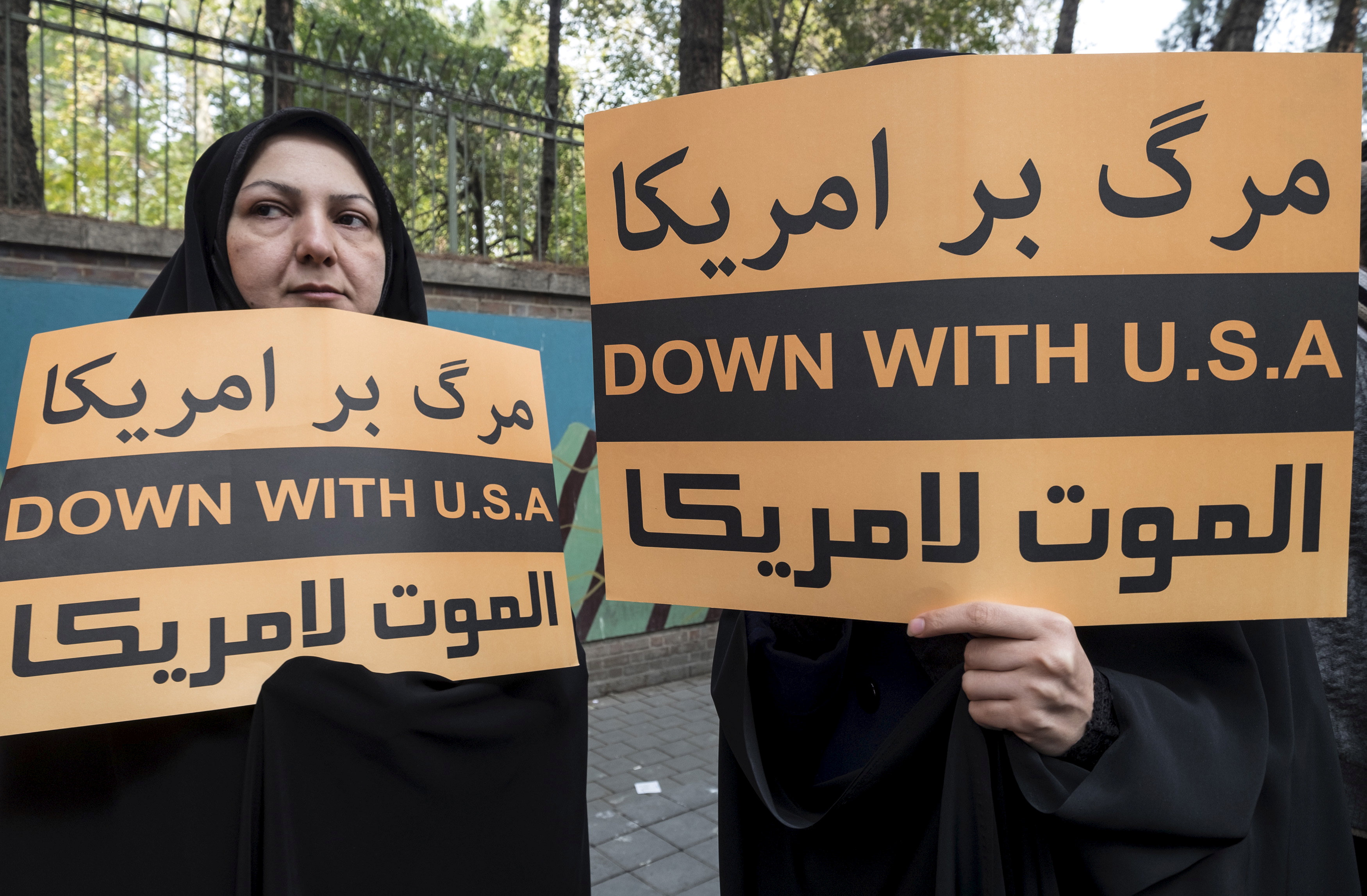
By Steve Holland and Jonathan Landay
WASHINGTON (Reuters) – President Donald Trump is likely to take a major step against the international nuclear deal with Iran on Friday, laying out a more aggressive approach to Iranian activities in the Middle East that risks upsetting U.S. relations with European allies.
“It is time for the entire world to join us in demanding that Iran’s government end its pursuit of death and destruction,” Trump said in a White House statement that flagged key elements of the strategy.
He is to present his plan in a 12:45 p.m. EDT (1645 GMT)speech at the White House, the product of weeks of internal discussions between him and his national security team.
U.S. officials said Trump was expected to announce that he will not certify the 2015 nuclear accord between Iran and six world powers, one he has called the “worst deal ever” as it was not, in his view, in the U.S. national interest.
Trump found himself under immense pressure as he considered de-certifying the deal, a move that would ignore warnings from inside and outside his administration that to do so would risk undermining U.S. credibility abroad.
He had formally reaffirmed it twice before but aides said he was reluctant to do so a third time.
De-certification would not pull the United States out of the deal but would give the Congress 60 days to decide whether to reimpose sanctions on Tehran that were suspended under the pact, negotiated during the administration of President Barack Obama.
U.S. House of Representatives Homeland Security Committee Chairman Michael McCaul told Reuters he thinks Trump “is likely to not completely pull out of the deal, but decertify compliance.”
IRANIAN WARNING
If Washington quits the deal, that will be the end of it and global chaos could ensue, Iran’s influential parliament speaker, Ali Larijani, was quoted by the Russian news agency TASS as saying during a visit to St Petersburg on Friday.
U.N. nuclear inspectors say Iran is in compliance with the accord, which limited the scope of Iran’s nuclear program to help ensure it could not be put to developing bombs in exchange for a lifting of international sanctions on Tehran.
Trump says Tehran is in violation of the spirit of the agreement and has done nothing to rein in its ballistic missile program or its financial and military support for the Lebanese Shi’ite movement Hezbollah and other militant groups.
White House Chief of Staff John Kelly said on Thursday the U.S. approach toward Iran is to work with allies in the Middle East to contain Tehran’s activities.
“We have footprints on the ground, naval and Air Force is there to just demonstrate our resolve, our friendship, and try to deter anything that any country out there may do,” Kelly told reporters.
European allies warn of a split with the United States over the nuclear agreement, in part because they are benefiting economically from a relaxation of sanctions.
A variety of European allies, including the leaders of Britain and France, have personally appealed to Trump to re-certify the nuclear accord for the sake of allied unity.
Germany’s government pledged on Friday to work for continued unity if Trump de-certified the deal as Berlin remain convinced the agreement was an important tool to prevent Iran developing nuclear weapons.
Foreign Minister Sigmar Gabriel underscored German views in a telephone call with U.S. Secretary of State Rex Tillerson late on Thursday, his spokeswoman Maria Adebahr told reporters.
Gabriel said on Thursday U.S. behavior was driving a wedge between Europe and its close ally United States and bringing Europeans closer to Russia and China. “It’s imperative that Europe sticks together on this issue,” said Gabriel.
Russian President Vladimir Putin’s spokesman, Dmitry Peskov, said on Friday that if the United States withdrew from the deal, “this will damage the atmosphere of predictability, security, stability and non-proliferation in the entire world”.
U.S. MOVE AGAINST REVOLUTIONARY GUARDS
McCaul said he expected Trump also to announce some kind of action against the Iranian Revolutionary Guard Corps, the country’s most powerful security force. Trump is under a legal mandate to impose U.S. economic sanctions on the Revolutionary Guards as a whole by Oct. 31 or waive them.
U.S. sanctions could seriously hurt the IRGC as it controls large swaths of Iran’s economy. The Guards’ foreign paramilitary and espionage wing, the Quds Force, is under U.S. sanctions, as is the Quds Force commander, other officials and associated individuals and entities.
The 2015 nuclear agreement, signed by the United States, Britain, France, Germany, Russia, China, the European Union and Iran, has been denounced by Trump as “an embarrassment” and “the worst deal ever.”
European officials have categorically ruled out renegotiating the deal but have said they share Trump’s concerns about Iran’s destabilizing influence in the Middle East.
China has said it hopes the agreement will stay intact.
Israel, Iran’s arch-adversary in the Middle East, welcomed Trump’s anticipated announcement on Friday but voiced doubt that the tougher tack by Washington could turn around the Islamic Republic.
The International Atomic Energy Agency concluded that Iran secretly researched a nuclear warhead until 2009, which Tehran denies. Iran has always insisted its uranium enrichment activity is for civilian energy purposes, not for atomic bombs.
The threat of new U.S. action has prompted a public display of unity from rival factions among Iran’s rulers. Iran will react sharply to any U.S. move against the nuclear deal with global powers, Foreign Minister Mohammad Javad Zarif told the Iranian parliament on Wednesday.
(Reporting by Steve Holland and Jonathan Landay in Washington; additional reporting by Warren Strobel in Washington, Andrea Shalal in Berlin Dmitry Solovyov in Moscow and Dan Williams in Jerusalem; Editing by Yara Bayoumy and Mark Heinrich)











